Instructors
Parker Everhart
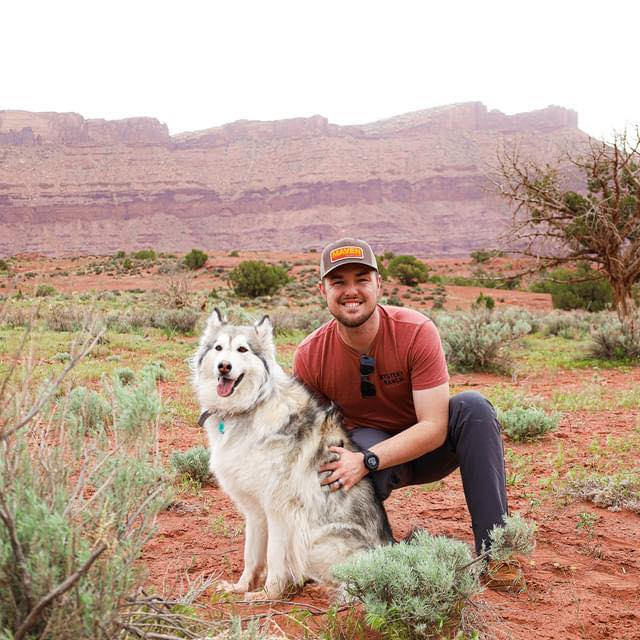
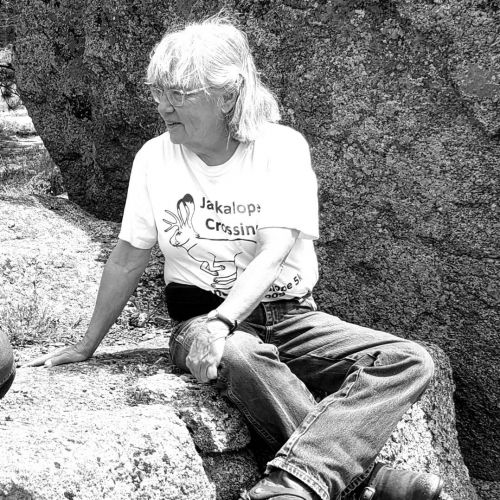
Jennie Lawrence
Brett Addis
Brett Addis is the Associate Director of the Biodiversity Institute and Assistant Lecturer in Haub School of Environment and Natural Resources at the University of Wyoming. Brett earned her master’s degree and PhD at the University of Montana, where she studied population genetics of boreal toads and dispersal in spring salamanders. She came to Laramie in 2021 as a postdoctoral researcher to analyze amphibian population trends using data from the Rocky Mountain Amphibian Project. In addition to thinking about quantitative questions in ecology, Brett enjoys snow, field guides, and searching for elusive critters.
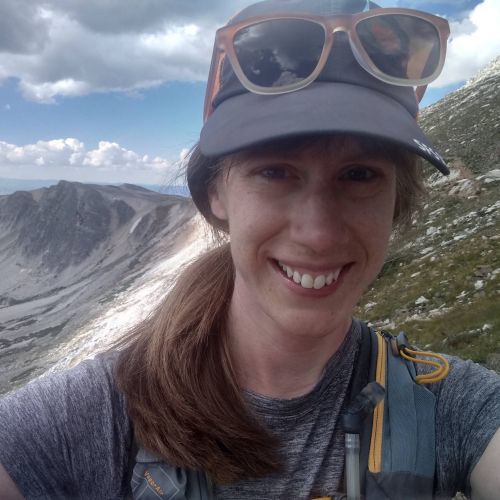
James Mauch
James has been a geologist with the Wyoming State Geological Survey since 2019. He holds a B.S. in earth sciences from Montana State University and an M.S. in geology from Utah State University. He specializes in geologic hazards, geologic mapping, and geomorphology, and is especially fond of any project that takes him into the field to study geologically active landscapes. His work at the WSGS includes mapping surficial geology and geomorphology for 7.5’ and 30’x60’ quadrangles, inventorying and analyzing landslides, and studying Quaternary-active faults. In his free time, James enjoys exploring wild places under his own power, generally via skis, bike, or a pair of hiking shoes.
Dorothy Tuthill
Dr. Dorothy Tuthill is the former Associate Director of the Biodiversity Institute, where she developed and delivered educational programs. She is an alumna of the University of Wyoming Department of Botany, with research focused on soil microfungi. Raised by entomologists and broadly trained in botany, Dorothy enjoys sharing her enthusiasm for the natural world with students of all ages, and especially enjoys looking at the often missed tiny things.
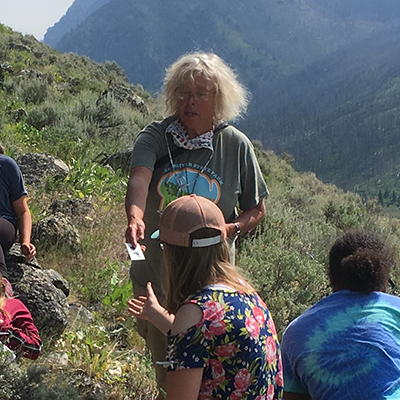
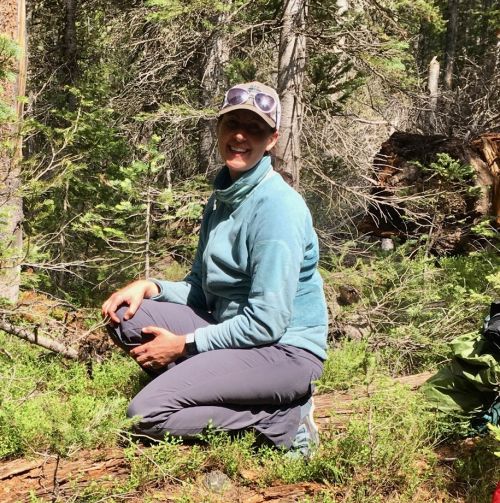
Paige Copenhaver-Parry
Paige Copenhaver-Parry is the lead ecologist for the Wyoming Natural Diversity Database (WYNDD) at the University of Wyoming. Paige holds a Ph.D in Ecology from the University of Wyoming and a B.S. in Biology from George Fox University. Paige has spent the past decade conducting research in forests of the Intermountain West and Pacific Northwest, teaching undergraduate students, working alongside natural resource managers to address information and data needs, and directing and participating in science outreach activities. Paige especially enjoys finding creative ways to make the more complex and quantitative elements of forest ecology accessible and relatable to managers, students, and the broader public.
Zach Hutchinson
Zach Hutchinson is the Community Science Coordinator for Audubon Rockies, a partner of the Wyoming Naturalist Program. Zach is an experienced master bird bander, coordinating the monitoring efforts by Audubon Rockies in Colorado, Wyoming, and Utah.
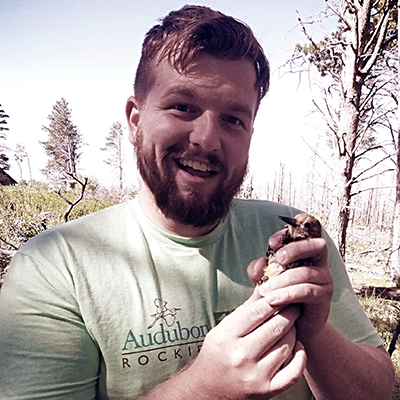
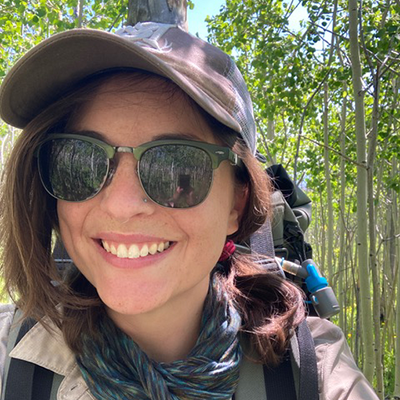
Rhiannon Jakopak
Scott Schell
Scott Schell is the University of Wyoming’s extension entomology specialist based in Laramie. He earned his B.S. (1991) and M.S. degrees (1994) in entomology from U.W. and then was a research associate for Prof. Jeffrey Lockwood in the College of Agriculture for nine years. Starting in 2003, his work responsibilities changed to the identification of arthropods submitted through the Extension system to UW and providing management recommendations for arthropod pests of all sorts.
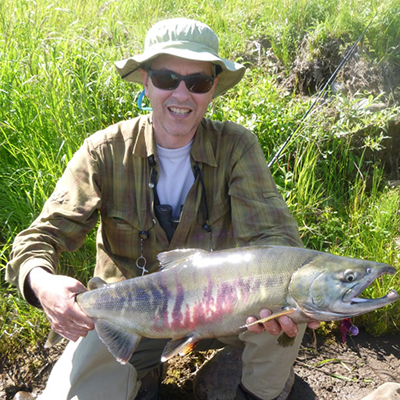
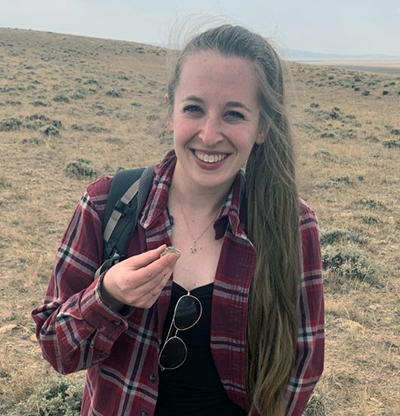
Mason Lee
Mason Lee is the senior project coordinator for the UW Biodiversity Institute. She has a B.S. and M.S. in wildlife biology and has worked with endangered reptiles and amphibians in Texas and Wyoming. Horned lizards are her passion.
Brian Sebade
Brian Sebade is a University of Wyoming Extension Educator located in southeast Wyoming. He is based in Laramie and serves Albany, Carbon, Goshen, Platte, and Laramie Counties. Brian’s focus for Extension is related to agriculture and horticulture education with a smaller focus on 4-H and youth development. A few of the major programs and subjects Brian has taught and facilitated include native plant identification and awareness, range monitoring, poisonous plants, edible plants, weed management and identification, Master Gardeners, wildflowers for reclamation and pollination, and pesticide certification.
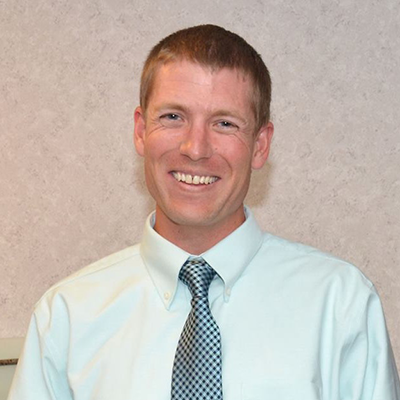
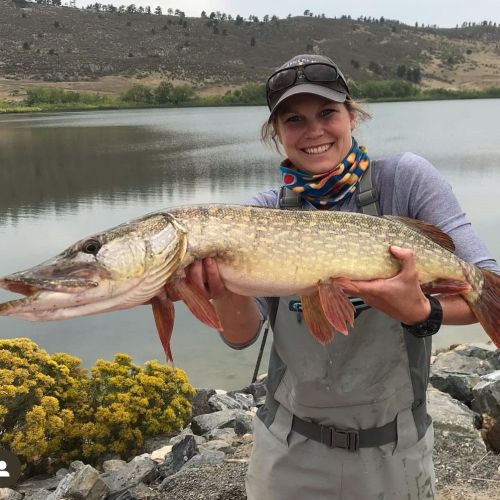
Carli Baum
Carli Baum is an Aquatic Habitat Biologist for the Wyoming Game and Fish Department based out of the Lander Region. She earned her Bachelor of Science degree in Zoology and her Master of Science in Fish, Wildlife, and Conservation Biology both from Colorado State University. Carli has a strong background in aquatic ecology and outdoor education, where she regularly uses that knowledge when implementing river restoration projects to improve fisheries habitat and public fishing opportunities and teaching kids and adults about WGFD camps. When she's not splashing around in rivers for work, Carli enjoys splashing around rivers for fun, fishing, canoeing, camping, mountain biking, and snowboarding.
Brent Ewers
Brent Ewers is the Director of the University of Wyoming Biodiversity Institute and NSF EPSCoR and is a professor of plant physiological ecology in the Botany Department. He obtained an M.S. and Ph.D. in Ecology from Duke University specializing in how water and nutrient availability change tree water use traits. Brent and his lab group members use first principles of biophysics approaches to look at how the diversity of plant traits in crops, rangelands, and forests impacts plant controls over mass and energy exchanges and plant productivity. These techniques allow the group to address plant responses to drought, fire, and insect activity and determine how plant biodiversity should be included in ecosystem models ranging in scales from plant organs to landscapes.
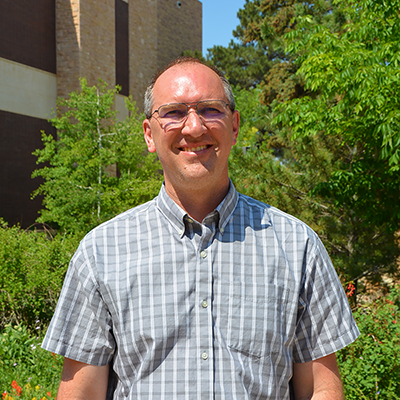
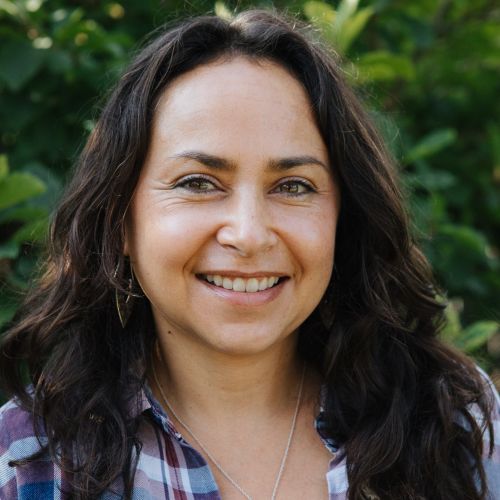
Jacelyn Downey
Jacelyn Downey loves to explore and share the beautiful and wild places of Wyoming. She is the Director of Community Building for Audubon Rockies where she organizes community events for people of all ages, creates resources and materials for educators, and manages Audubon Rockies education, community science, and Habitat Hero programs.
